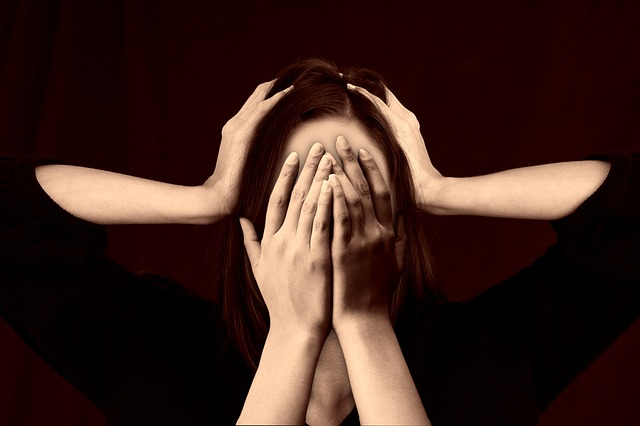Stress, chronic illness and the spoon theory

I'm going to talk about something that is with us chronically ill all the time, no, not a heat pack. Stress. Stress can go unnoticed by others as we all feel and react to stress differently. Being chronically ill means that stress is a large portion of our everyday life. We stress over weather we will be able to clean our homes, if we can cook dinner without needing naps. Or even going to the doctors and stressing over weather they will believe us.
For me personally, the way I deal with stress is to know EVERYTHING about my health. What exacerbates the pain, what triggers a flair up, what drugs agree and don't agree with me. Knowing your condition like the back of your hand will help keep stress at a healthy level, because you will be one step ahead.
One thing that really helped me when I was first diagnosed, was the spoon theory. If you've never heard of the spoon theory, you're probably thinking how does cutlery come into it? Christine Miserandino came up with the idea in 2003. She has lupus and, when describing her predicament to a close friend in a café, she grabbed some nearby spoons as props. They counted out 12 spoons and Miserandino explained that daily tasks such as eating breakfast cost her at least one of those spoons, and showering used up two. The spoon theory is a clever way to help you manage your health, to know how to pace yourself, and more importantly help get on top of stress.

The term spoons was coined by Christine Miserandino in 2003 in her essay "The Spoon Theory". Thanks to Christine, I have been able to manage my life, and explain to friend's and family why sometimes I can't do certain things, which would always leave me in a ball of stress and anxiety, because I would never know how to explain to them in a way that a healthy person would understand.
Does it do more than explain energy levels and how stress can have a big affect on us?
We all experience stress differently in different situations. Sometimes you might be able to tell right away when you're feeling under stress, but other times you might keep going without recognising the signs. Stress can affect you both emotionally and physically, and it can affect the way you behave.
irritable, aggressive, impatient or wound up
over-burdened
anxious, nervous or afraid
like your thoughts are racing and you can't switch off
unable to enjoy yourself
depressed
uninterested in life
like you've lost your sense of humour
a sense of dread
worried about your health
neglected or lonely.

And the NHS has stress busting tips such as:
Be active
Take control
Connect with people
Have some 'me time'
Challenge yourself
Avoid unhealthy habits
Help other people
Work smarter, not harder
Try to be positive
Accept the things you can't change
Tell us about how you deal with stress, do you think your impairment causes more stress? What are your tips for overcoming stress?
Comments
-
Hiya yes it sure does .vicous circle pain fatigue equals low mood .which then can turn too frustration and yes more pain!..if I find medatation can help but it's more of a quick fix.i try the spoon thery ,which is a great idea .but still don't manage not too have terrible flares ,and then the circle begging so again .if anyone has any good suggestions .i would be eager too try anything!!!0
-
Also learning too say no ,not easy though harder than you think0
-
The user and all related content has been deleted.1
-
Yes it’s a viscous circle . What came first the stress or the pain? Hard to tell. All I know is stress makes me have more pain. If I deal with stress better I get less pain.0
-
Spoon theory is a great way to picture what’s available to someone with specific resources. I usually say to myself & others that living with a chronic health condition is like having a rechargeable battery! Like the bundle of spoons, it’s something that’s easy to relate to and picture.0
-
An interesting concept i seem to run out of spoons quicker some days than others.0
Categories
- All Categories
- 15.7K Start here and say hello!
- 7.4K Coffee lounge
- 103 Games den
- 1.7K People power
- 149 Announcements and information
- 24.8K Talk about life
- 6K Everyday life
- 478 Current affairs
- 2.5K Families and carers
- 889 Education and skills
- 1.9K Work
- 560 Money and bills
- 3.7K Housing and independent living
- 1.1K Transport and travel
- 632 Relationships
- 1.5K Mental health and wellbeing
- 2.5K Talk about your impairment
- 873 Rare, invisible, and undiagnosed conditions
- 936 Neurological impairments and pain
- 2.2K Cerebral Palsy Network
- 1.2K Autism and neurodiversity
- 40.9K Talk about your benefits
- 6.1K Employment and Support Allowance (ESA)
- 20K PIP, DLA, ADP and AA
- 8.9K Universal Credit (UC)
- 5.9K Benefits and income


